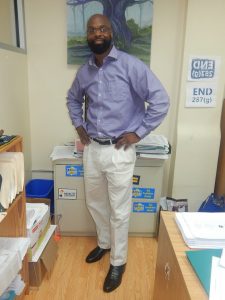Download a copy of the print brochure here: Jan 2017 (pdf)
Cosmos–Colossians–Us
9:15 AM, Assembly Room
Join us in January for our annual all-ages education series in the Assembly Room with warm bagels with choices of spreads (nutella, grape jelly, cream cheese) along with hot beverages. Welcome, Middle School and High School students and adults!
In this series we will explore Paul’s letter to the Colossians, in which, in four short chapters, Paul charts a cosmic course from the creation of the universe to the congregation in Colossae (present-day Turkey). Learn about who these ancient people and the God who redeems them, us, and the whole cosmos.
January 8
Created through Christ
Mark Edwards
Christians often call God the Creator, but in Colossians 1, Paul says Christ is. How can this be? What role does he play? Using an amazing clip from Tree of Life, we’ll explore a cosmic vision of creation in Christ. Mark Edwards is Director of Youth Ministry here at Nassau, teaches at both The College of New Jersey and Princeton Theological Seminary, and is a Nassau parent.
January 15
The Mystery of Christ
Jacq Lapsley
Paul calls Christ, “God’s mystery” and proceeds to try to solve the greatest problems of the Bible in light of the cross. How does it all work? Join Jacq Lapsley for a session that collapses the Old and New Testaments into Christ. Jacqueline Lapsley wears many hats at Nassau, and in her spare time teaches Old Testament at Princeton Theological Seminary. She is a fan of the intergenerational January education series and also
Star Wars.
January 22
Clothed in Christ
Nancy Lammers-Gross
Here Paul says our deaths and lives are “hidden in Christ.” What does this mean? And can the Christian really live in the compassionate way Paul suggests? Nancy Lammers-Gross is Associate Professor of Speech Communication in Ministry at Princeton Theological Seminary and a parent of former Nassau youth.
January 29
Colossians (& Us) in Christ
Eric Barreto
Who were the Colossians anyway? And what does Paul’s letter to this strange congregation have to say about Christ’s call to our church? Join Eric Barreto as he unpacks the names, places, and meanings in Paul’s closing chapter. Eric Barreto is Weyerhaeuser Associate Professor of New Testament at Princeton Seminary, an ordained Baptist minister, and a Nassau parent.
1st Corinthians In-Depth
George Hunsinger
9:15 AM, Maclean House
- Ongoing through May 21
- Class does not meet on January 1 or 8
George Hunsinger returns for the 20th year to lead this verse-by-verse examination of the First Letter of Paul to the Corinthians. Bibles are available for use during the class. Find them on the Deacon Desk by the church kitchen. Class meets next door in Maclean House (Garden Entrance).
Living the Questions
Bill Phillippe
9:15 AM, Niles Chapel
Come and hear and discuss the ideas of a number of progressive contemporary theologians and scholars such as John Dominic Crossan, Amy Jill Levine, and the late Marcus Borg. The overall theme is transformation. During a 20-minute video, which includes conversation, sermon clips, and lecture excerpts by a number of thought-provoking speakers, we will stop the video 4 or 5 times to engage in facilitated discussion led by retired Presbyterian pastor, Bill Phillippe, a Minister of Word and Sacrament who attends Nassau Presbyterian Church.
William R. (Bill) Phillippe is a retired Presbyterian minister and author of The Pastor’s Diary. He says about his book “….I got involved in the church during high school and college and discovered others had different myths than I did. This expanding awareness gave me the stimulus to take a hard look at my own myth.” Bill has served a number of churches, was Synod Executive for 10 years, and has served as Acting Executive Director of the General Assembly Mission Council.
January 15
A Kingdom Without Walls
The good news of the gospel tells of a radical hospitality where boundaries, barriers, and walls are overcome by a grace that knows no bounds.
January 22
Social Justice: Realizing God’s vision
Being a person of faith demands balancing spiritual pursuits with action. In a society which is often unjust and inequitable, we are compelled to pursue social justice as an expression of hope in realizing a better world.
January 29
Incarnation: Divinely Human
The meaning of incarnation has been debated since the beginning of Christianity. Although often associated with Jesus alone, the notion of incarnation can be understood to also include Jesus’ followers, called, like Jesus, to enflesh the Spirit in divinely human ways.

